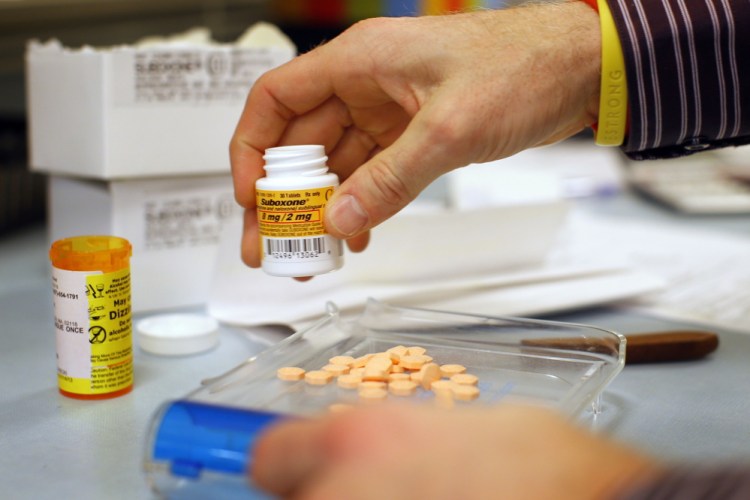There’s a proven way to fight drug addiction and prevent relapses and overdose deaths, but Maine is shunning it.
The state is trying to make it harder for patients to access Suboxone and methadone, two addiction-treatment medications with a track record of success. The Maine Department of Health and Human Services announced this week that it wants to impose more unfunded mandates on physicians who prescribe methadone and Suboxone – though there’s already a shortage of prescribers. Gov. Paul LePage, who successfully pushed for a two-year cap on Medicaid coverage of Suboxone and methadone, told the radio station WVOM on Tuesday that methadone is “useless” and said he’d like to close the clinics that provide it.
Now, the same reluctance to embrace evidence-based practices is casting a shadow over what looked like good news for people who want to stop using opioids: the planning in Bangor of Maine’s second detoxification center.
At the 10-bed Bangor detox center – established via a $3.7 million drug-fighting bill that legislators unanimously endorsed earlier this year – patients won’t be getting Suboxone to ease the nausea, stomach and muscle cramps and anxiety that are all part of withdrawing from opioids.
Instead, the Portland Press Herald recently reported, they’ll be given a “comfort pack” of other, less-effective medications. Too few clinicians in Bangor are trained and willing to prescribe Suboxone, explained an official with Community Health and Counseling Services, a Bangor agency that’s leading the effort to create the detox there.
Used to help about 80 percent of the patients at the Milestone Foundation detox center in Portland, according to the Press Herald report, Suboxone is a mainstay of medication-assisted treatment, along with methadone. Both are opioids that reduce drug cravings and ease withdrawal symptoms without producing a high.
It’s an approach that’s been shown to be the gold standard for both detoxification and long-term treatment regimens. It’s been endorsed by the broad-based Maine Opiate Collaborative, which worked for over a year on a statewide strategy to combating the opioid crisis. And it’s a model backed by the LePage administration, Dr. Christopher Pezzullo, state health officer, insisted Monday in an interview with the Maine Public Broadcasting Network.
But informed support for science-based medicine apparently isn’t enough to stop the implementation of unproven policies. So at a time when Maine should be making big strides against the opioid crisis, the state is pushing an approach that will, at best, keep us stuck where we are – and, at worst, could feed the spiral of addiction that has led to too many broken lives and preventable deaths.
Copy the Story LinkSend questions/comments to the editors.



Success. Please wait for the page to reload. If the page does not reload within 5 seconds, please refresh the page.
Enter your email and password to access comments.
Hi, to comment on stories you must . This profile is in addition to your subscription and website login.
Already have a commenting profile? .
Invalid username/password.
Please check your email to confirm and complete your registration.
Only subscribers are eligible to post comments. Please subscribe or login first for digital access. Here’s why.
Use the form below to reset your password. When you've submitted your account email, we will send an email with a reset code.